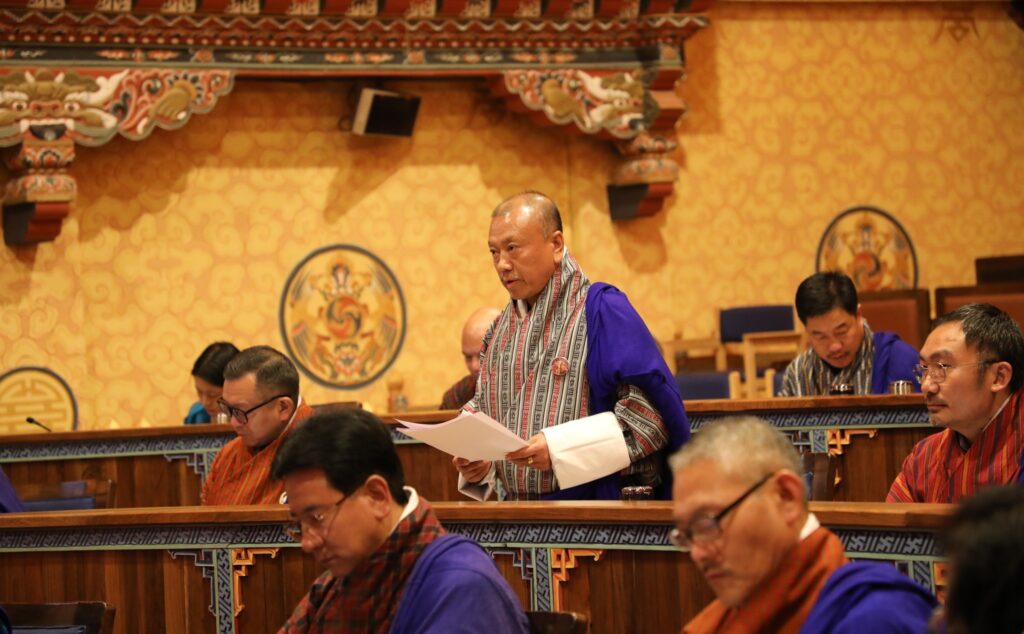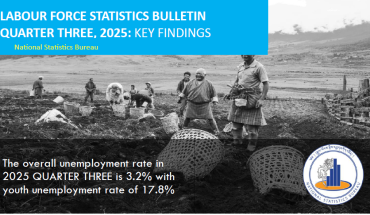
DORJI GYELTSHEN
Thimphu
The Natural Resources and Environment Committee (NREC) of the National Council tabled the Marriage (Amendment) Bill of Bhutan 2024 for deliberation on 19 Nov. The Bill was passed in the 1st session of the 4th Parliament of the National Assembly (NA) and forwarded to the National Council for further review.
In his presentation, the Chairperson of the NREC, Kelzang Lhundup, briefly outlined the various consultations and field visits carried out by the Committee. He presented the committee’s proposal on the Bill, which included an overview of the proposed amendments, the amendments made by the NA, and the Committee’s recommendations.
He also noted that Bhutan recorded 1,313 divorce cases, according to data from the National Statistics Bureau (NSB) for the year 2022. Based on research, the Committee identified key reasons for divorce, which were presented as percentages: 73% citing lack of commitment, 56% excessive arguing, 55% infidelity, 46% marrying at a young age, 45% unrealistic expectations, 44% lack of equality in the relationship, 41% inadequate preparation for marriage, and 25% due to domestic violence.
The amendment also seeks to strengthen protections for women, particularly in cases of divorce. The proposed changes include increasing the duration of alimony payments and providing greater support for women in vulnerable situations.
The bill proposes changes in the compensation for divorce case-related individuals. The NREC is also pushing for increase in the compensation period by three months in each category.
The Marriage Act 1980 entitles victims to three months of daily wages if they get divorced within the first three years of marriage, five month’s wages for marriages lasting up to six years, and seven month’s daily wages for those marriages lasting more than seven years and above.
The revised Marriage Act will incorporate stricter measures to combat domestic violence. This includes provisions for mandatory counseling, temporary restraining orders, and increased penalties for perpetrators.
In simple terms, the victims related to divorce cases are now entitled to compensation amounting to Nu. 65,500/-, a significant increase in compensation to the previous entitlement of Nu. 45,000/-.
The overall goal of the amendments is to align the Marriage Act with evolving societal norms and international best practices. This includes addressing issues such as polygamy, child marriage, and forced marriage.
The NREC also anticipated that the proposed child alimony should be increased to 40% of the monthly income compared to the existing amount of child alimony.
Despite huge and unanimous positive reactions and comments on the proposed bill, a big concern was raised over the affordability of the increased amount, not undermining the country’s current post-COVID-19 economic situation and the fact that significant numbers of the Bhutanese population live in poverty.
The National Statistics Bureau of Bhutan (NSB) recorded 1,313 divorce cases in the year 2022, which is one of the biggest national issues to be addressed as fast as possible in the country with a population of less than a million.
The main reasons behind such high divorce cases in Bhutan are unplanned marriages, financial conditions, young age marriages, alcohol and substance abuse, lack of marriage commitment, and domestic violence.
Zhemgang NC Tshering Tshomo supported the bill saying that the person who chooses to get divorced should be held accountable and should also be in a position to fulfill the new proposed alimony rates. She added that such strict rules and heavy compensations would help minimize the divorce cases in the country as it would make couples find a way to avoid divorce through various ‘Nangkha Nangdrig’, a local term for compromise.
Birendra Chimora, Dagana NC, also supported the motion stating that it has become very easy to get divorced in the country today, but it has far-reaching consequences on children’s mental and psychological state.
While the proposed amendments have sparked significant public debate, with various stakeholders expressing their views on the potential impact of the changes, the National Council is seeking public input and feedback to ensure that the revised legislation reflects the needs and aspirations of the Bhutanese people.
Following the discussions, the House directed the Committee to revisit certain provisions in consultation with the Members who raised concerns. The final Bill is scheduled to be adopted on December 3, 2024.





